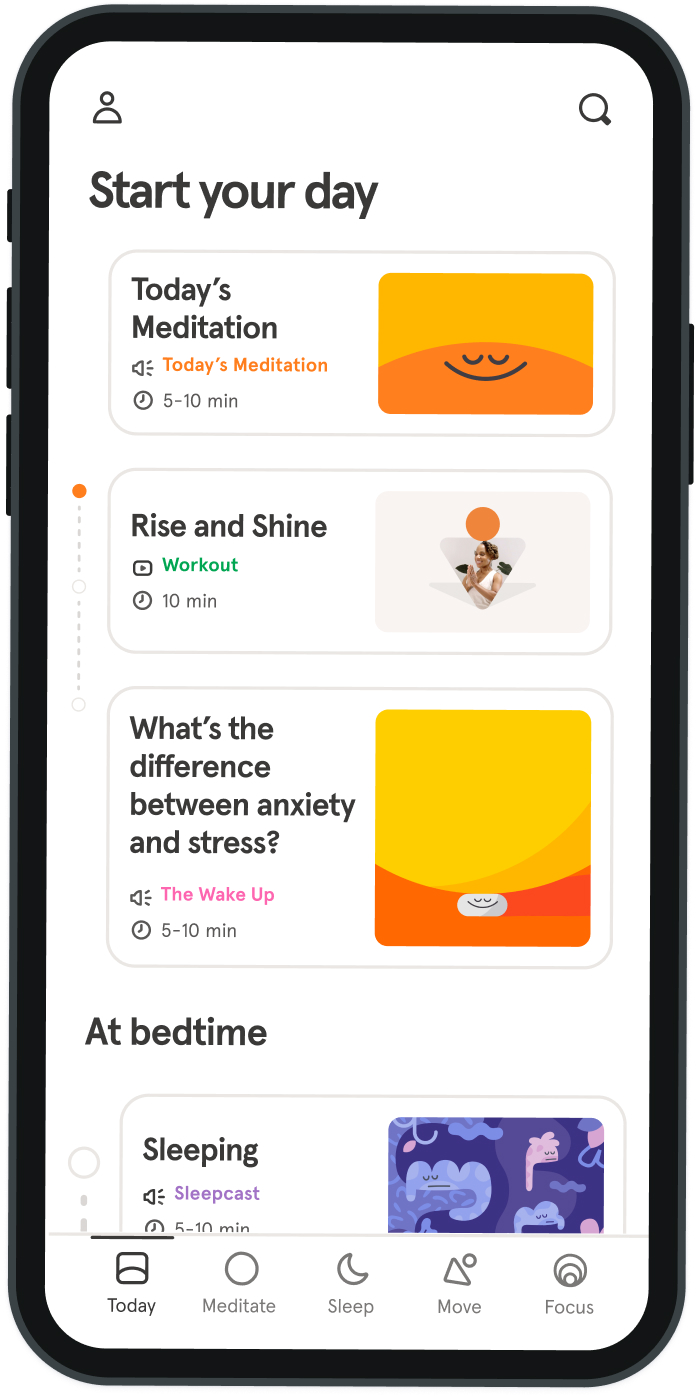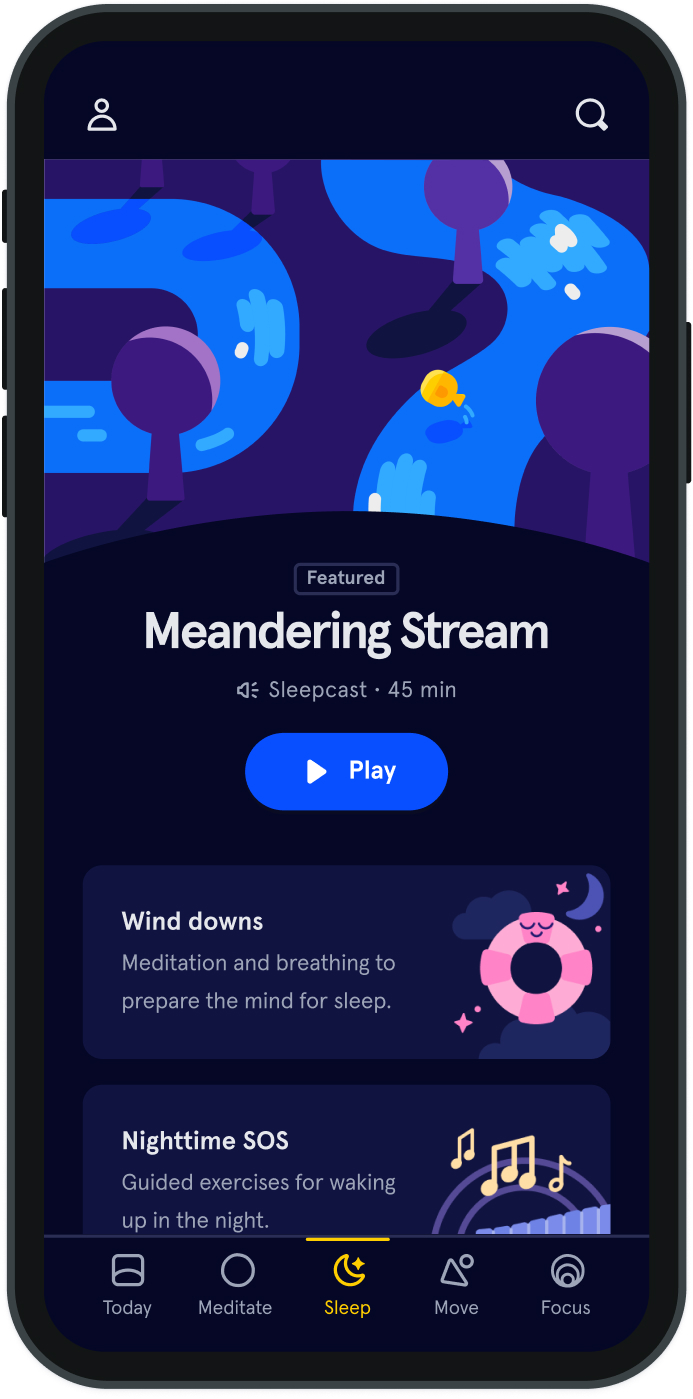How meditation makes work suck less
“The fact that this report even made it to print is downright irresponsible. Do you really mean to tell me that this is the best you can do? Well you can tell your CEO that we plan to spread the word about your organization and actively work to discredit these findings.” An angry client continues his rant as I type furiously with one hand and shovel salad into my mouth with the other.
I don’t know what’s more bitter: my wilting arugula or the voice blasting through the speakerphone. It’s 2pm on a Tuesday afternoon, and I’m officially stressed. I have a few options in this negative “choose your own adventure” customer service scenario: (a) argue back, (b) appease his demands, or (c) try to reach a compromise. My mind is swirling and starting to pound; I can feel my emotions bubbling up a bit too close to the surface. I go rogue and choose option D: take a timeout and follow up later. This situation isn’t unique—anyone whose job includes some amount of external facing responsibilities, whether it be in an office, retail, or other service setting, must deal with difficult clients from time to time. It is worth acknowledging that someone in a more direct customer service role like a barista isn’t afforded the luxury of choosing option D. Such positions require split-second decision-making, with later reflection on the situation. In either case, I have found meditation to be the best way to ease my stress and conduct business effectively. After a tense goodbye, I take notes detailing the client’s concerns and head straight to our office’s meditation room, leaving all technology behind. The room is plainly decorated. It is peacefully quiet and filled with natural light; there are no external distractions. I take a brief break from the workday to unwind, focus on my breathing, and then begin to reflect on next steps to address the earlier confrontation. In a mere 15 minutes, I’m able to shift my thinking and attitude without ever stepping foot outside the office. I feel empowered to strategically meet the client’s needs without frustration. I return to my desk and complete all the required next steps in less time than it’d take to stress-eat a bag of chips (my former go-to).
This space has proven useful when I feel overwhelmed by all types of workplace stress. When the tasks and emails are piling up, I need to prepare for a major presentation, or I’m just struggling to work with a difficult colleague, I always retreat to the meditation room. This plain setting has been 100% effective in enabling me to address a versatile list of challenges I’ve faced on the clock. Our non-profit office created a meditation room after studying big corporations’ deployment of this new strategy to boost employee morale and productivity. These companies include Apple, whose late CEO Steve Jobs heavily promoted meditation (including retreats and 30 minutes of daily reflection for all staff), along with corporations like Google, Nike, and HBO. Hollister Staffing, a company based in Boston, deployed a new meditation space in their office and even offer guided meditation along with independent use. Chief executive Kip Hollister is a certified meditation instructor who guides optional sessions that start “with a ‘clearing,’ getting thoughts to quiet, and doing mantras, then setting some intentions.” While not everyone in the office participates in her sessions, those that do have become notably “more present and more productive.” The creation of a meditation room at work may boost both the emotional and physical health of staff. Way back in 1997 before they merged with Ameritas Mutual Insurance, Acacia Life Insurance built a meditation room to improve general well-being (true workplace trendsetters). Former health services manager Mary Alice Mezenwerth highlighted the physical need for such a sanctuary, saying, “Stress can cause a lot of physical symptoms. It can increase allergy symptoms and blood pressure and cause stomach problems, among other things. And when you have high stress at work, it can spill over into the home."
The World Health Organization has called stress “the health epidemic of the 21st century,” and estimated in 2013 that it costs U.S. businesses “up to $300 billion per year” in losses. All companies feel the need to develop some kind of program to address this pain point, and meditation rooms are often the simplest and most effective approaches to reduce stress. Most offices, including my own, simply repurpose a pre-existing space, such as rarely used conference rooms or empty offices. This low-cost addition to the office environment provides a high impact on worker morale. With some simple restructuring of resources, companies demonstrate to their staff that they care about their health and work-life balance, all while benefitting from employees’ increased productivity. If your company doesn’t currently have a meditation space, it can easily be created with minimal effort. Test the idea out with coworkers and higher-ups: refer to the model sets by other companies, research done on employee health benefits, and even anecdotal experiences from offices that already have this feature. After socializing the idea, try petitioning your boss or Chief of Staff to transform a rarely used conference room or work area into a meditation room. In the meantime, you can always create your own pop-up meditation space by reserving a conference room for this very purpose. Try it out for 15 minutes per day, or simply book as needed—whatever best suits your style. My office’s newly instated meditation room has rocked my world. I feel happier, less stressed, and more effective at my job. Meditation during those crisis situations along with a daily practice has tremendously improved my outlook on the immediate circumstances and longer-term impact of my actions. Through use of this space, I have learned how to better prioritize my tasks, troubleshoot difficult situations as they arise, and fully reflect on my practice. This refuge within our single office suite has become an invaluable resource in my career.

The creation of a meditation room at work may boost both the emotional and physical health of staff.
Meg Mankins


Be kind to your mind
- Access the full library of 500+ meditations on everything from stress, to resilience, to compassion
- Put your mind to bed with sleep sounds, music, and wind-down exercises
- Make mindfulness a part of your daily routine with tension-releasing workouts, relaxing yoga, Focus music playlists, and more
Meditation and mindfulness for any mind, any mood, any goal

Stay in the loop
Be the first to get updates on our latest content, special offers, and new features.
By signing up, you’re agreeing to receive marketing emails from Headspace. You can unsubscribe at any time. For more details, check out our Privacy Policy.
- © 2025 Headspace Inc.
- Terms & conditions
- Privacy policy
- Consumer Health Data
- Your privacy choices
- CA Privacy Notice
